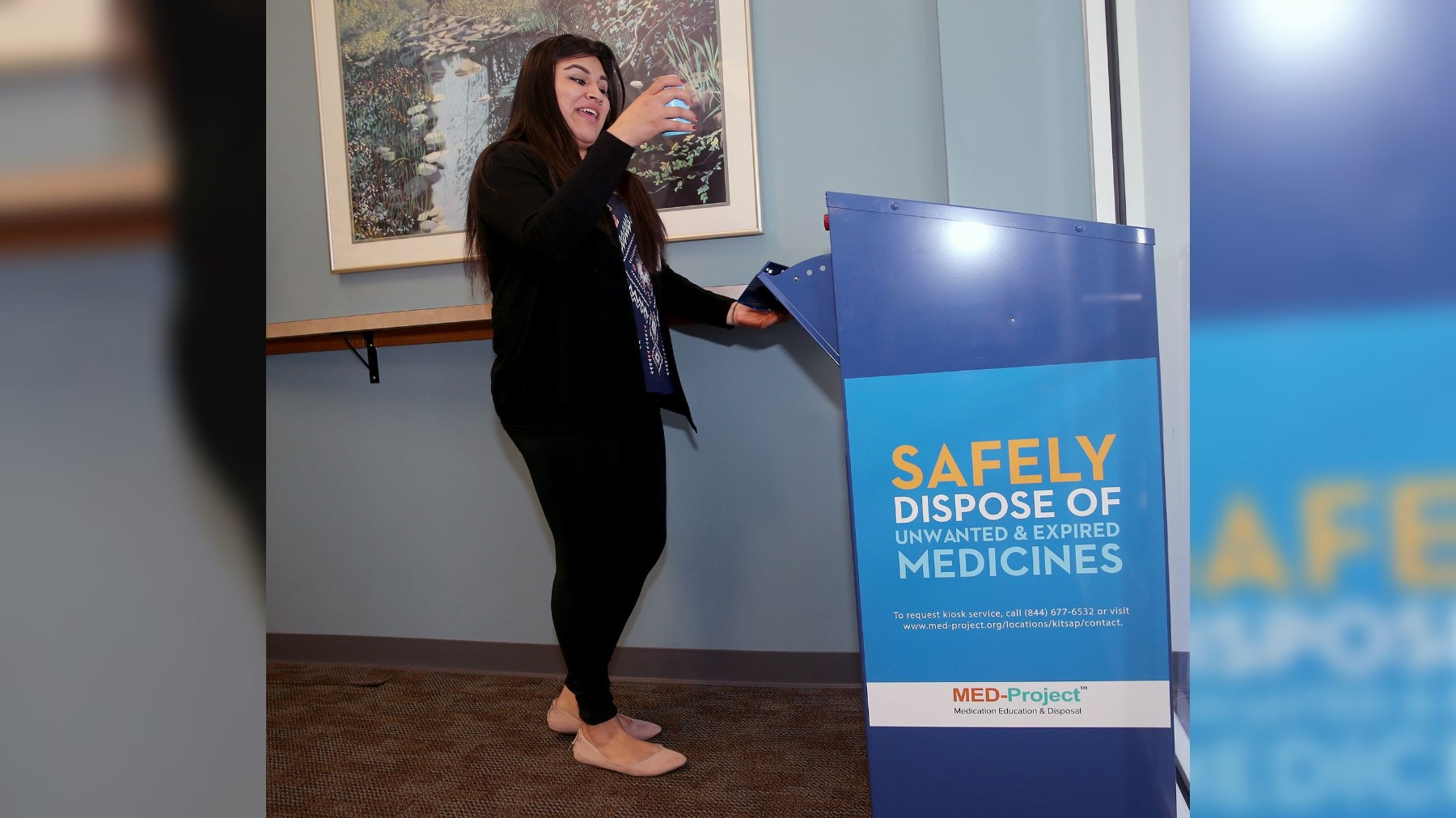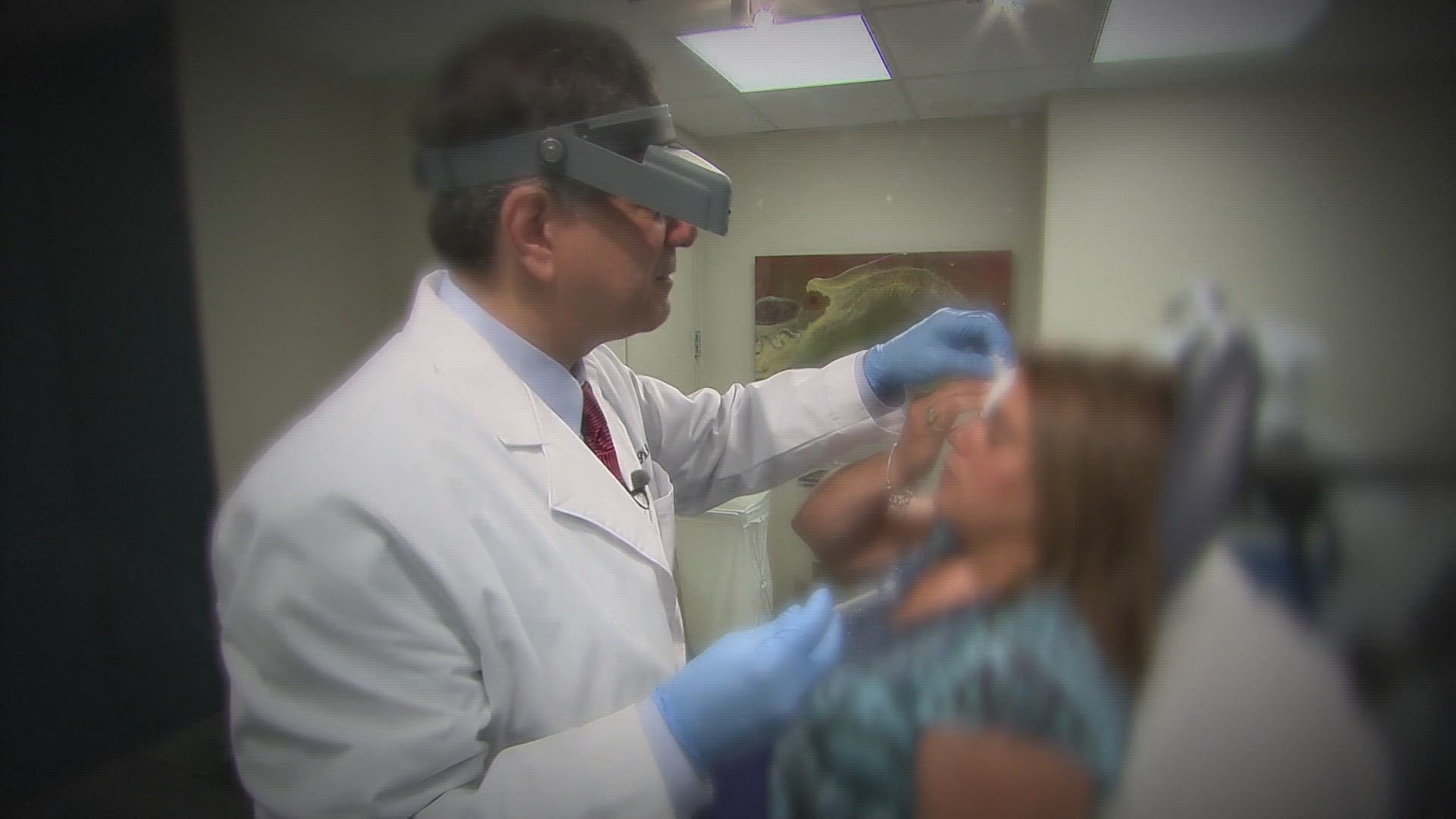BREMERTON — Newly installed medication drop-off boxes will offer Kitsap residents a safe way to dispose of unused or expired pills.
Eight secure kiosks were installed last week at locations throughout the county, according to the Kitsap Public Health District, and more are on the way. The sites are part of a program that requires pharmaceutical companies that manufacture drugs in Kitsap to pay for drug take-back and disposal.
Peninsula Community Health Services has four of the kiosks, one each at its Port Orchard, Poulsbo and two Bremerton clinics. Three boxes are at Kaiser Permanente pharmacies in Port Orchard, Poulsbo and Silverdale. Central Market has one at its pharmacy in Poulsbo.
“We’re excited to do our part to get medications off the street and out of people’s medicine cabinets,” Peninsula Community Health Services CEO Jennifer Kreidler-Moss said.
The boxes are free to use, but with some stipulations. Herbal remedies, cosmetics, aerosols, medical devices, thermometers with mercury, medications with iodine, sharps and illegal drugs aren’t accepted.
The program also has a mail-in option, which allows people to request an envelope and send in their unused medications for free.
Public health officials hope the kiosks will cut back on the accidental use and abuse of medications, as well as prevent environmental harm from improper disposal. Drugs dropped off in the kiosks will be taken to a facility to be incinerated.
It’s illegal in Kitsap to throw drugs away or flush them down the toilet. Until now, law enforcement agencies have operated the only medication take-back programs in the county.
“Unused, unwanted and expired medicines in homes pose a risk to people, to our community, and to the environment,” Kitsap Public Health District’s health officer Dr. Susan Turner said. “Medicine take-back programs provide a secure and environmentally-sound way to dispose of leftover or expired medicines, and are a part of a comprehensive approach to preventing prescription drug abuse.”
While the Health District oversees the program, it doesn’t install the boxes. The contractor hired by drug manufacturers, MED-Project, has also helped set up similar drug take-back programs in Washington and California.
MED-Project expects to install a drop box at the Bainbridge Island Police Department Monday, according to the Health District. The contractor is also negotiating agreements with the Kitsap County Sheriff’s Office and Suquamish Police for kiosks.
The full list of installed boxes will be available on the MED-Project’s website and will change as more sites are approved, according to environmental health director John Kiess.
“Any site that meets the requirements to host a box, they can basically raise their hand at any time with the contractor and say we want one,” Kiess said.
In 2016, Kitsap’s Public Health Board passed an ordinance mandating drug manufacturers install the kiosks and handle disposal. The ordinance, which was modeled after similar regulations in King and Snohomish Counties, also requires drug manufacturers to come up with a plan for promotion and public education.
Kitsap was the third county in the state to adopt medication take-back regulations, following King and Snohomish Counties. Pierce and Whatcom Counties have since passed similar regulations. Public health officials in Clallam and Skagit Counties are also considering the idea.
A bill currently awaiting Gov. Jay Inslee’s signature would require drug manufacturers statewide to pay for similar take-back sites. If signed, Kitsap’s program could continue for up to 18 months, when the Department of Health would take over.
Getting rid of unnecessary pills reduces the risk of someone accidentally ingesting them, Kreidler-Moss said. Pharmacies can’t accept unused medications except in very specific circumstances.
“The more locations that you have that’s convenient to get rid of (medications), the better for the community,” Kiedler-Moss said.
For more information, click here or go to kitsappublichealth.org.


